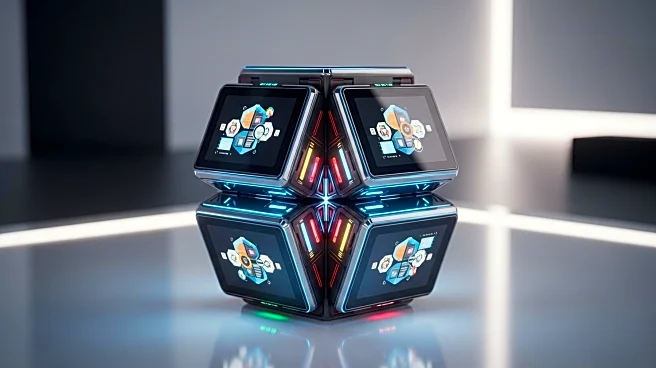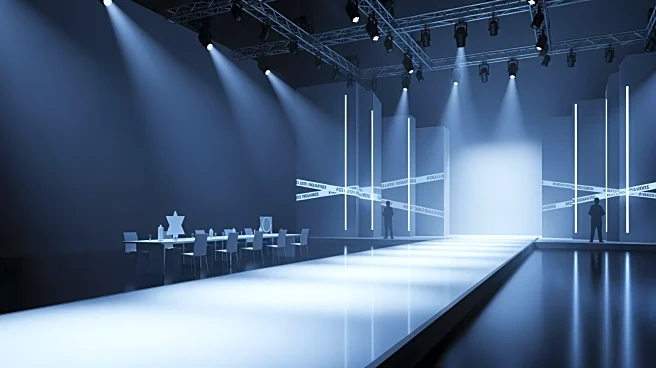What's Happening?
Spin Master has introduced a new version of the Rubik's Cube, known as the WOWCube, which replaces traditional colored squares with 24 tiny LCD screens. This innovative gadget allows users to play mobile games by rotating the cube, aligning track pieces, and utilizing sensors for tilting, shaking, or tapping. The WOWCube, developed in collaboration with Cubios, is available for preorder at $299, with shipping expected before the holiday season. It features a proprietary charger and offers up to five hours of battery life. The cube connects to a mobile app, providing access to an app store with a mix of free and paid games, including modified versions of popular titles like Space Invaders and 2048.
Why It's Important?
The WOWCube represents a significant evolution in the realm of puzzle toys, merging traditional gameplay with modern technology. This development could impact the toy industry by setting a precedent for integrating digital elements into classic toys, potentially attracting tech-savvy consumers and younger audiences. Spin Master's collaboration with Cubios highlights the growing trend of partnerships between established brands and tech innovators, which may lead to more interactive and engaging products. The WOWCube's app store and SDK offer opportunities for developers to create unique applications, potentially expanding the cube's functionality and appeal.
What's Next?
As the WOWCube enters the market, its reception will likely influence future developments in the toy industry, particularly regarding the integration of technology into traditional toys. Spin Master and Cubios may continue to enhance the cube's capabilities, adding more games and features to its app store. The success of the WOWCube could encourage other toy manufacturers to explore similar innovations, potentially leading to a new category of tech-infused toys. Consumer feedback and sales performance will be crucial in determining the cube's long-term impact and viability.
Beyond the Headlines
The WOWCube's introduction raises questions about the balance between traditional play and digital interaction. While it offers a novel way to engage with a classic toy, it also reflects broader cultural shifts towards screen-based entertainment. This development may spark discussions about the implications of technology on childhood development and the preservation of traditional play experiences. Additionally, the WOWCube's price point could limit accessibility, prompting considerations about affordability and inclusivity in the tech-toy market.









